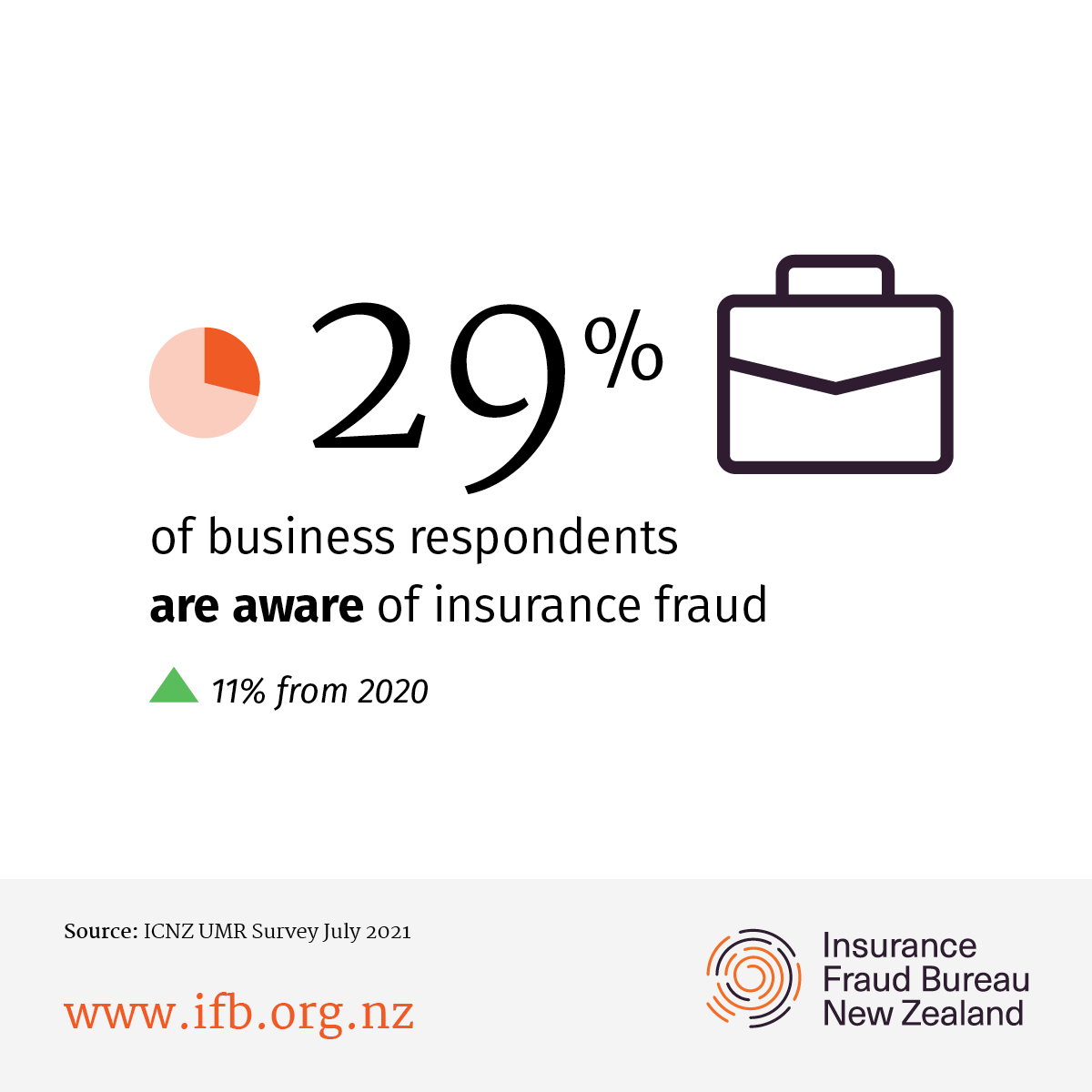
Our recently conducted annual research showed that New Zealand businesses have an improved understanding of insurance fraud compared to the results from our 2020 survey. In fact, business’ knowledge of insurance fraud increased by 11% compared to last year. This significant increase in knowledge reflects the environment Kiwi businesses have been working in the past 12 months – the impact of significant weather events and increased instances of cyber-attacks.
To better understand these results, let’s take a look at typical insurance policies for businesses and what the impact of weather extremes and cyber-attacks have meant for businesses when considering insurance cover, or making insurance claims.
Five key types of commercial insurance
- Commercial property insurance
A property portfolio should have comprehensive insurance coverage to provide protection against everything from natural disasters, fires, floods, accidental damage, a sudden breakdown of service machinery (lifts, heating, and air-conditioning systems), and importantly loss of rental income due to insured damage. Insuring the liability risks in connection with a property business is just as important as insuring the property for fire and earthquake.
In the last 12 months, businesses have been impacted by significant weather events with a tornado in South Auckland, severe flooding in the West Coast and Canterbury to name just a couple of events.
Events such as these highlight the importance of insurance, and in the process of engaging with insurance brokers and advisers, and making insurance claims, there is a natural increase in the knowledge of what could be considered insurance fraud as business’ general understanding of insurance is increased.
Find more information about commercial property insurance.
- Commercial motor insurance
For some businesses, motor insurance may be their key priority. A business may own commercial vehicles which are leased or rented to their customers or own a business fleet for the use of their staff. A business can decide their level of insurance cover – comprehensive cover, third party cover, fire, and theft cover. Generally, if there is any finance on the vehicles, then the finance interest will require the motor vehicles to be comprehensively insured.
The last year has seen businesses becoming more vulnerable, such as rental vehicle companies succumbing to theft of vehicles.
Much like property insurance, engaging with insurance brokers and advisers, or making insurance claims does increase overall knowledge of insurance and a greater awareness of insurance fraud.
Find more information about commercial motor insurance.
- Business interruption insurance
Many businesses have suffered interruptions to their normal business operations in the past 12 months from one of the many significant weather events, or a cyber-attack (e.g. denial of access) to their business or a key supplier. There is often a financial impact to business interruption and insurance cover can help you keep afloat until your operating revenue improves. A business interruption policy will often be extended to include your suppliers and public utilities.
Find more information about business interruption insurance.
- Liability insurance
Business liability insurance can include:
- negligently causing loss to someone else’s property or business
- negligent professional advice when providing professional services
- unintentionally breaching a statute.
Find more information about liability insurance.
- Cyber insurance
Cyber-attacks are becoming more commonplace, as technology used by cyber criminals becomes more complex and more people are working from home on unsecured networks and consuming more digital media (think streaming Netflix rather than watching mainstream television channels).
Businesses can be easy targets for cyber-attacks, accessing unsecured customer data and holding businesses to ransom for it. Denial of service attacks (a type of cyber-attack that disables a machine or network) are also problematic for businesses. Cyber insurance has become an increasingly important insurance cover, even for businesses who don’t consider themselves a digital business. 2020 reported $16.9 million in direct financial losses from cyber-attacks in New Zealand (source: https://www.cert.govt.nz).
News media reports and insurance brokers will have ensured that more Kiwi businesses are aware of the risks and regularity of cyber-attacks, highlighting the need to have appropriate insurance cover in place. A natural byproduct of increased engagement on the issue, is a greater awareness of insurance fraud too.
Find out more about cyber insurance.
“The sad reality of insurance fraud is that it is a cost that is covered by all policyholders. Improving this understanding will continue to be a key focus for IFB in our educational programme for the year ahead.”
Yvonne Wynyard, IFB Manager.
The Insurance Fraud Bureau (IFB) is an Insurance Council of New Zealand initiative to detect and deter general insurance fraud in New Zealand. The IFB has a mandate to educate the New Zealand public about insurance fraud, and part of this programme of work is to undertake annual research to assess how much Kiwis know and understand about insurance fraud. The results confirm for the second year running that a large number of Kiwis don’t understand the serious implications of insurance fraud and the potential impact that committing insurance fraud can have on all insurance policyholders.
Key initiatives such as Cyber Smart Week, organised by CERT NZ each year, serve to highlight the importance of understanding the threats of cyber-attacks, and what Kiwi businesses and individuals can do to protect themselves online. For more information about our 2021 research about insurance fraud in New Zealand, see our handy infographic.